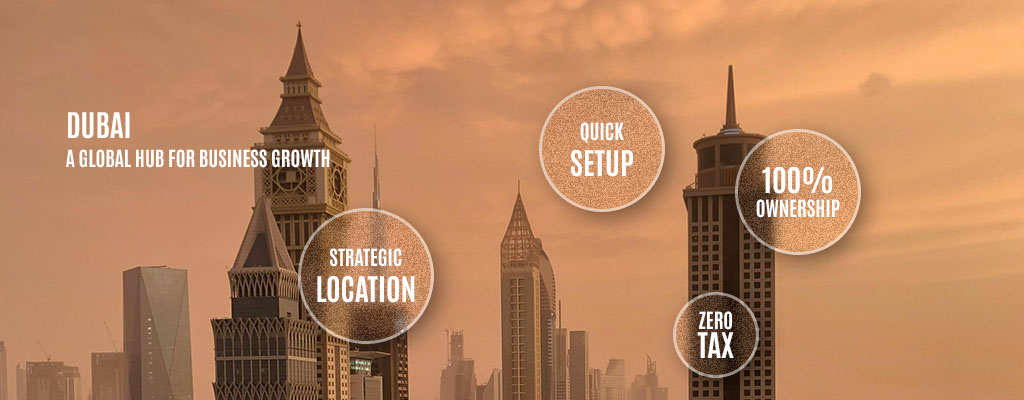Deciding between mainland and free zone company formation in the UAE impacts your operations, ownership, and compliance obligations. The right structure depends on your business goals, industry, and target markets.
In this guide, we break down the advantages, restrictions, and strategic use cases of each setup in 2025. You’ll also learn how Al Rais Group helps entrepreneurs choose the most cost effective and growth ready structure.

What Are the Advantages of a Free Zone Company in the UAE?
Free zone companies operate within designated economic zones across the UAE. They offer several administrative and tax benefits.
Key Benefits of Free Zones in 2025:
- 100% Foreign Ownership: No UAE sponsor or local partner is required.
- 0% Corporate Tax (In Many Zones): Subject to economic substance rules.
- Import/Export Duty Exemption: Ideal for trading and logistics firms.
- Quick Setup Process: Company setup in 3–7 working days on average.
- Customised Infrastructure: Access to warehouses, office spaces, and co-working hubs.
- No Currency Restrictions: Full repatriation of profits and capital.
| Feature | Free Zone Company |
| Foreign Ownership | 100% |
| Tax Rate | 0–9% (depending on activity & zone) |
| Office Requirement | Often optional |
| Visa Quota | Depends on office size |
| Scope | Limited to within free zone or international trade |

When Is Mainland Company Formation the Better Choice?
Mainland companies are licensed by the Department of Economic Development (DED) and can operate anywhere in the UAE.
Key Benefits of Mainland Companies:
- Access to Local UAE Market: Can serve both individuals and businesses across all Emirates.
- No Trade Restrictions: Work directly with government and private clients.
- Unlimited Visa Quota (with larger office space): Scales with business growth.
- Flexibility in Business Activities: Broader categories allowed, including sectors restricted in free zones.
- Eligibility for Government Contracts: Mainland companies can bid on tenders and contracts.
| Feature | Mainland Company |
| Foreign Ownership | 100% (in most sectors since 2021) |
| Tax Rate | 9% UAE Corporate Tax (if over AED 375,000 profit) |
| Scope | UAE-wide + international |
| Office Requirement | Mandatory physical office |
| Visa Quota | Scalable with office size |
What Are the Legal and Tax Differences in 2025?
In 2025, UAE business taxation is evolving with corporate tax enforcement and updated economic substance regulations. Legal obligations also differ between mainland and free zone companies.
| Criteria | Free Zone | Mainland |
| Corporate Tax | 0–9% (depending on activity & qualifying income) | 9% (above AED 375,000 profit) |
| VAT Registration | Required if turnover > AED 375,000 | Required if turnover > AED 375,000 |
| Audit Requirements | Required in most zones | Required |
| ESR & UBO Filing | Mandatory | Mandatory |
| Customs Duties | Exempt (within zone) | Applicable for imports |
| Legal Jurisdiction | Free Zone Authority | UAE Civil Law (DED & Federal) |
Note: Not all free zones are exempt from UAE corporate tax. Qualifying Free Zone Persons (QFZP) must meet strict criteria in 2025.
Which Structure Is Better for Your Business? [Case Study]
Scenario: E-commerce & Logistics Startup in 2025
Goal: Trade online across the UAE and export to GCC countries.
- Option 1 – Free Zone (e.g., Dubai CommerCity):
- Tax-efficient
- Easy customs clearance
- No access to local UAE market directly (needs local agent)
- Option 2 – Mainland (DED Dubai):
- Full local access
- More costly to set up
- Subject to UAE corporate tax above AED 375,000
Verdict: If you plan to sell within UAE, go mainland. If your focus is export, a free zone provides operational benefits.
How Al Rais Investment Helps You Choose the Right Structure
Al Rais Group guides entrepreneurs through every stage of company formation. With over a decade of local experience, we assess your business model, tax exposure, licensing needs, and long-term goals.
What We Do:
- Business activity matching for DED or Free Zone
- Free feasibility consultation with legal insights
- Fast-track company registration in 3–5 working days
- Assistance with visas, MOA, lease contracts & bank accounts
- Ongoing compliance support (VAT, ESR, CT, UBO)
Get a Free Setup Consultation Today
Still unsure whether mainland or free zone suits you best in 2025?
Our specialists offer a free company setup consultation to help you make the right decision before you invest.
Book Now: Schedule Your Free Consultation
Frequently Asked Questions
No. Free zone companies need a local distributor or agent to trade within the UAE mainland.
Yes, in most sectors since 2021. Some strategic sectors still require local participation.
Free zones generally offer lower initial setup costs, especially in flexi-desk models.
Yes. Audits are mandatory for most companies under UAE regulations in 2025.
Yes, but it involves a new license application, approvals, and relocation.



